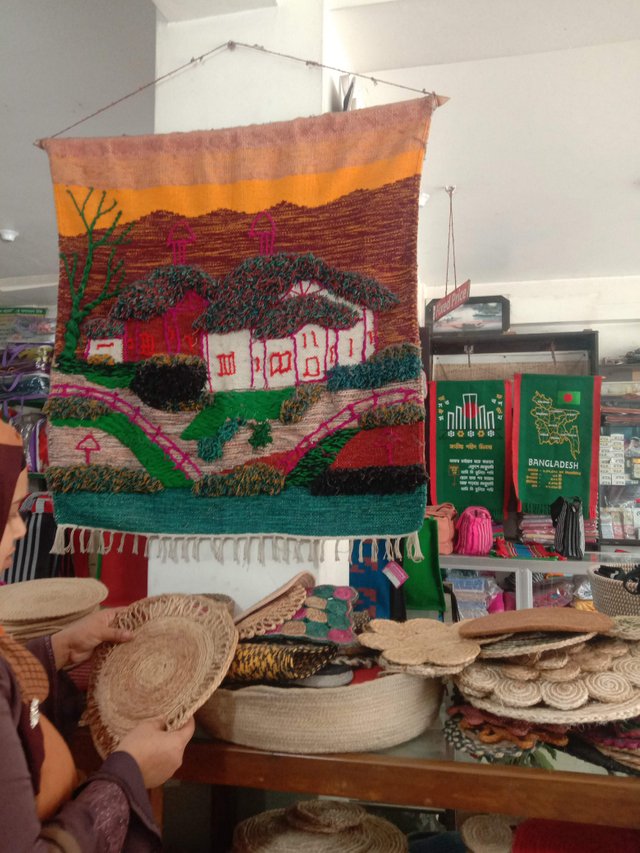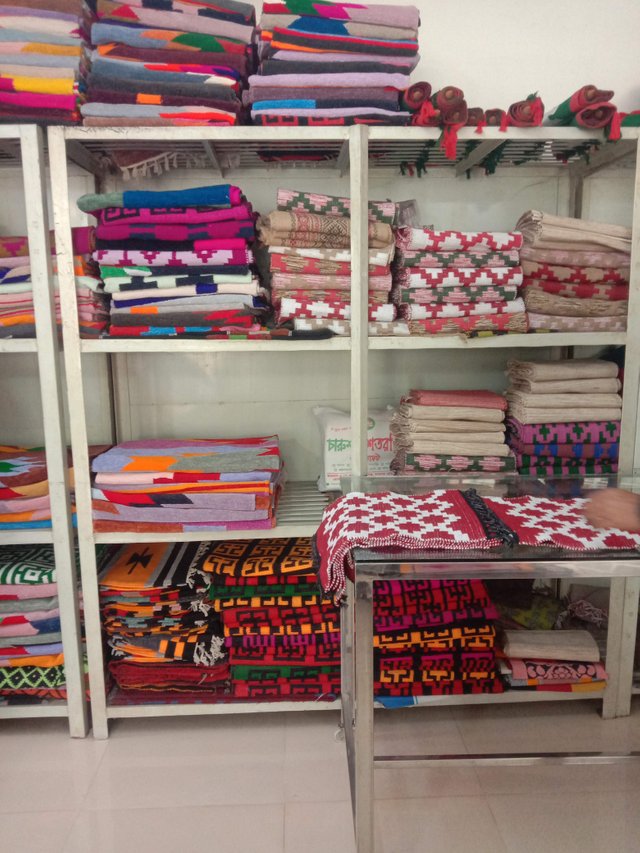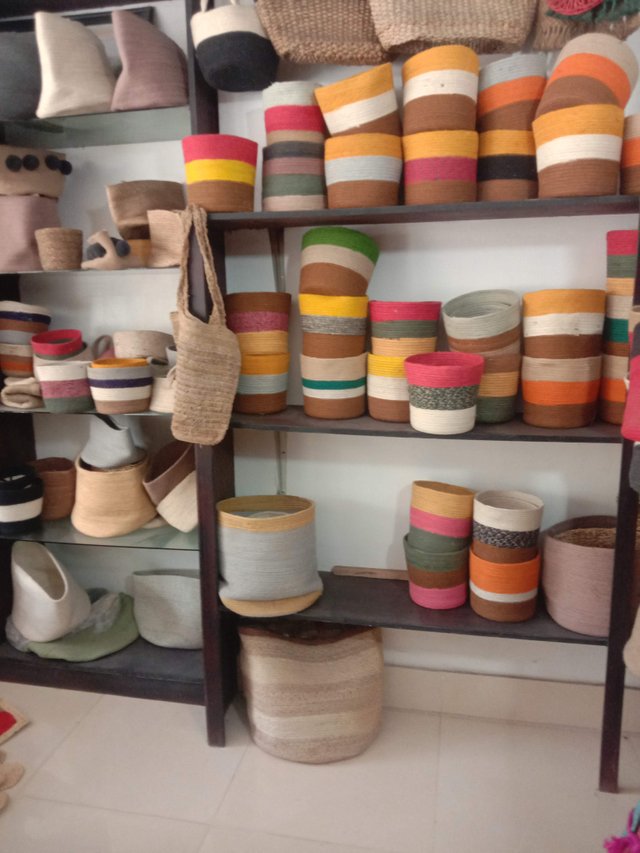"Bismillahir Rahmanir Rahim"
| My username is @gulshanpupry and I'm from Bangladesh. |
|---|
The traditional handicraft of Bangladesh's Rangpur district is called shataranji. Shataranji has reportedly been produced in Rangpur since the Mughal era, according to local mythology. The primary uses of shataranji are as wall, bed, and seat mats. The residents of the Rangpur region view Shataranji as a representation of wealth and aristocracy. It currently ranks among Bangladesh's exports of handicrafts. Shataranji is a product that Bangladesh exports to more than 50 nations worldwide. The World Trade Organization designated Rangpur's Shataranji as a Geographical Indication (GI) product of Bangladesh on June 17, 2021.

Nisbetganj, a small village on the banks of the Ghaghot River, is located on the outskirts of Rangpur City, West of the Cantonment. It is a bountiful place of history and heritage of Shataranji art. Forties of the eighteenth century, roughly. Mr. Nisbet, a British citizen, served as the district collector of Rangpur at the time. Pirpur was the name given to Nisbetganj at the time. Carpets, or Shataranji, were then manufactured in Pirpur village using thick, striped, multicolored yarn. These facts made an impression on Mr. Nisbet. Later, he helped improve the standard of Shataranji, promoted this business, and set up a thorough marketing structure for the manufactured goods. Mr. Nisbet's significant contribution to the quality development and marketing of this business led to the naming of Nisbetganj, a village abundant in Shataranji.

The oldest art form and most illustrious heritage in the Rangpur district is shataranji. The weaving technique known as "shataranji weaving" is one of the oldest in existence today.
Shataranji weaving is a mechanical procedure that is wholly antiquated. The primary component is yarn. To prepare each yarn, the fiber is passed through tiny spinning wheels using bamboo and rope.
Shataranji is created by manually calculating and designing. Shataranji was created by the original design.

In Shataranji patterns, two sorts of motifs are frequently used. The first is an old-fashioned or conventional design, whereas the second is contemporary.
Shataranji Virop from Rangpur is being exported to about 36 nations in Asia and North America. Rangpur Shataranji is in high demand, even in Bangladesh. Five Shataranji production facilities have been developed as of late by a non-governmental entity called Karupanya Rangpur Limited.
"Newcomers' Community" Achievement Verified Link :
